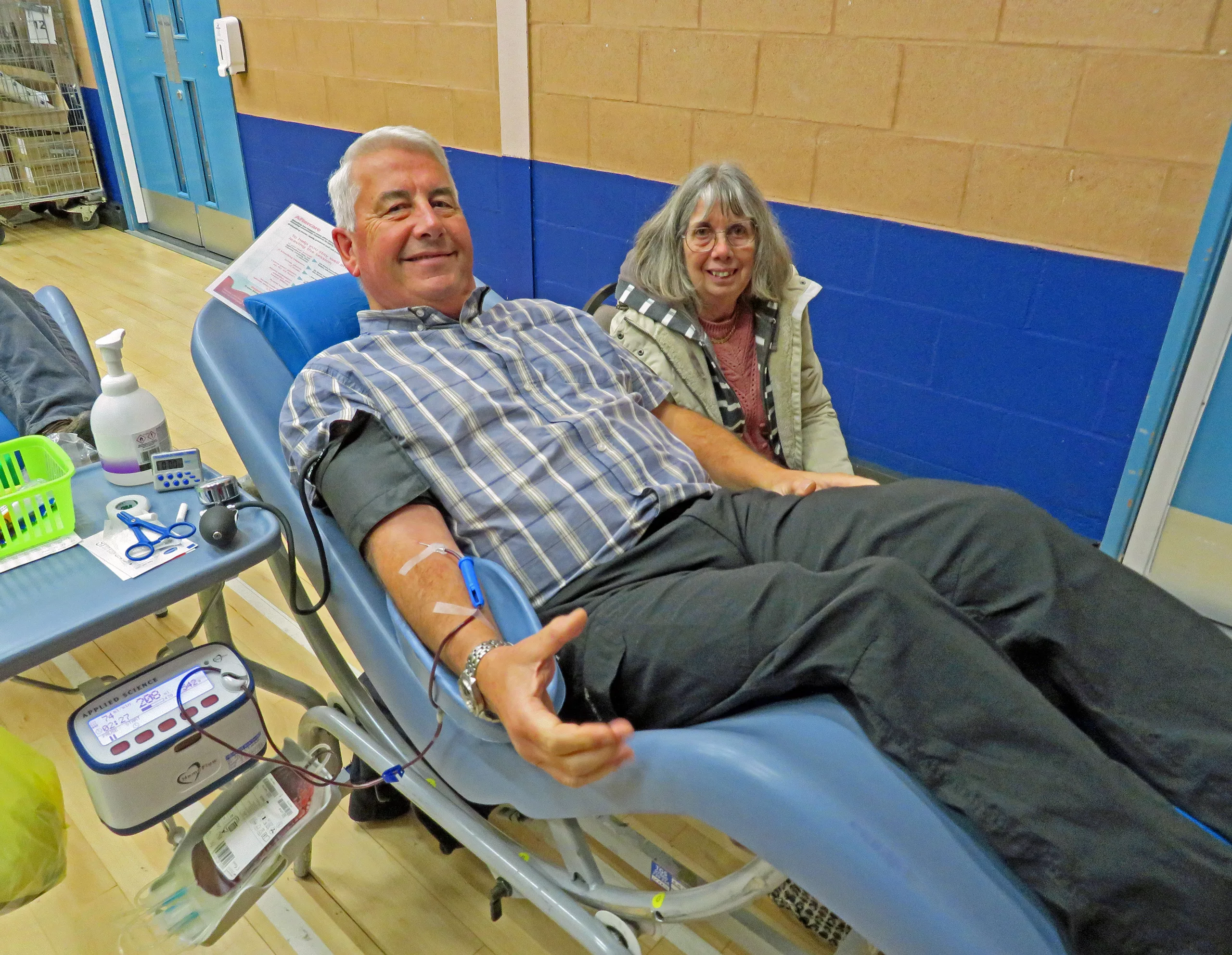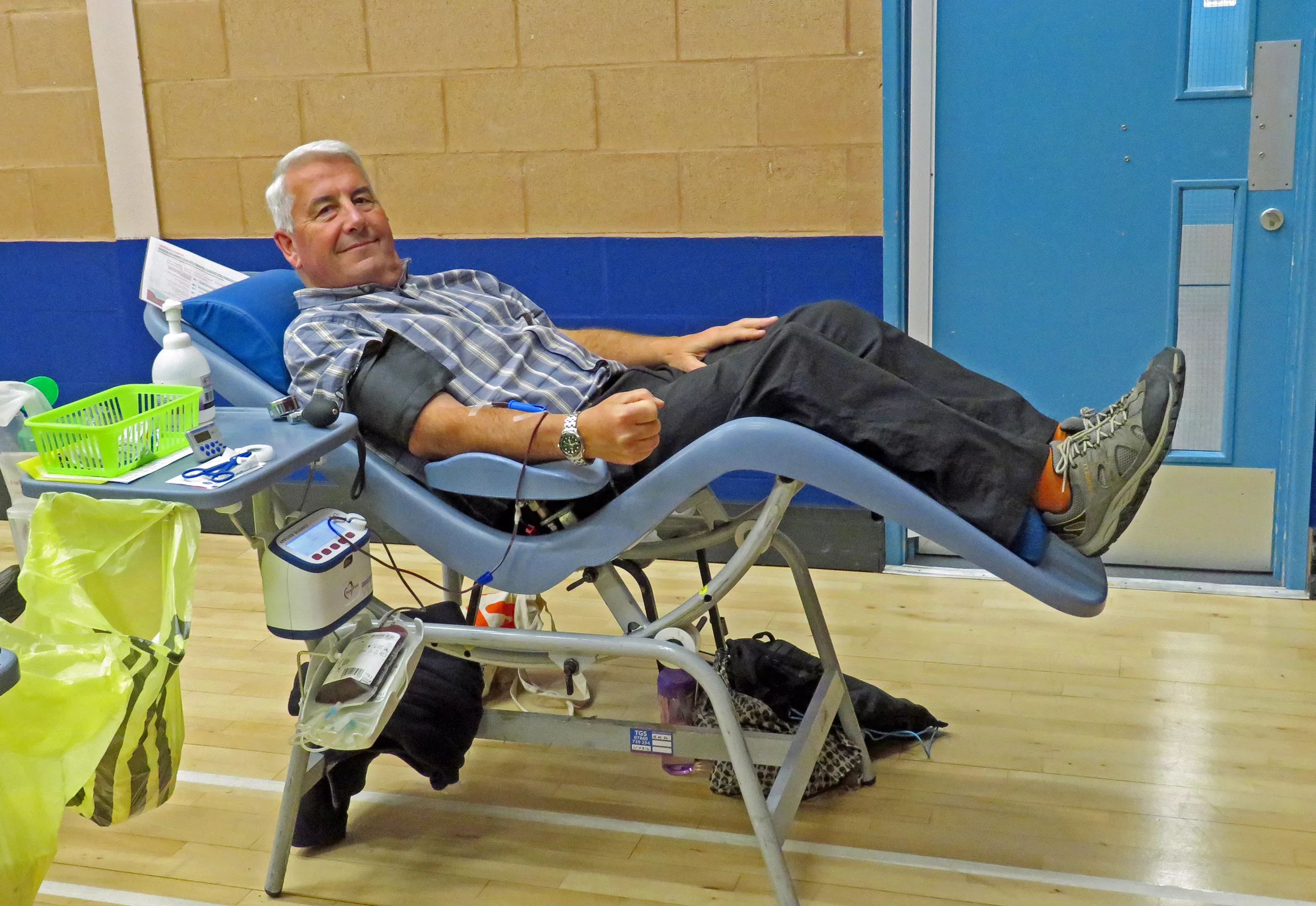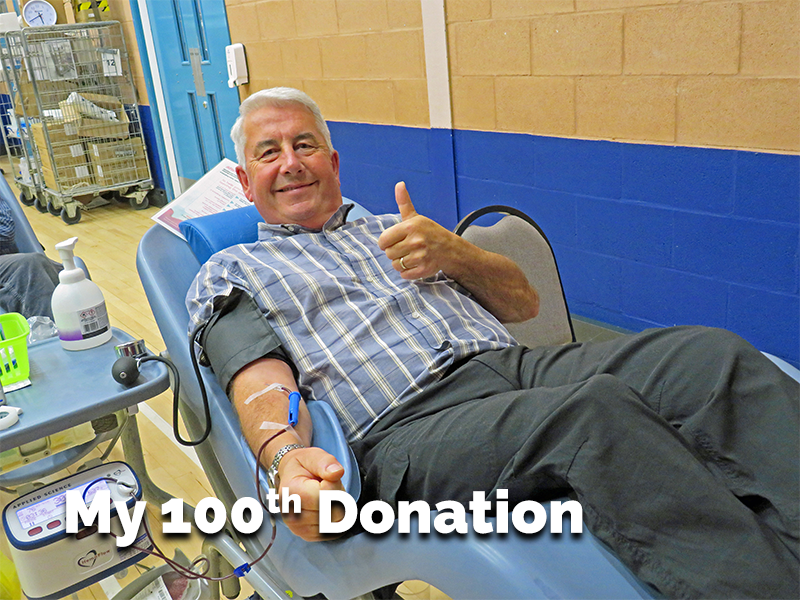A journey that for me commenced in April of 1976, reached a significant milestone in December 2023; my 100th blood donation! But why do I think it’s important that those of us who can, continue to donate blood in support of the NHS Blood and Transplant Service?
On average, 4,300 blood donations are needed every day to meet the needs of NHS patients in England this year. But on average, only 2% of people who are eligible to donate blood actually give a donation! And the NHS report that about 30% of established blood donors stop donating each year. So it is estimated that the service needs 140,000 new donors to replace those who can give no longer. And this, as you may well imagine, is a big problem! But every new donor who joins will help to make the supply of blood stronger and more dependable, which means people have a better chance of getting the blood they need.

I know, from personal experience, how important the blood and transplant service is. When I experienced my limb loss as a result of road traffic accident in September 1979, I was already an established blood donor. And I started out in rather unusual circumstances. I began racing motorcycles in 1976 and before you can be granted a racing licence, you have to pass a medical examination. An essential part of this process requires a record of the racer’s blood group, and my GP, who conducted my examination, suggested that I attend a local blood donation session to discover my group. This of course I was happy to do, and I still regularly donate to this day.
My life was saved after my accident by the skill of the medical staff and crucially, many units of donated blood, as two major operations were required to help me get through the greatest physical and emotional challenge. Without those blood products, I would not have survived my injuries.
Many of you reading this blog may have received blood donations as a direct result of your limb loss, be it as part of an elective procedure, or as in my case, following a trauma accident. And it is important to point out that anyone who has received blood, platelets, plasma or any other blood products after 1 January 1980, is not allowed to donate under the current NHS rules. This stems from the problems identified over forty years ago in relation to Creutzfeldt–Jakob disease. However, my second major surgery was carried out in October 1979 and after a couple of years out of the picture, I have been able to continue my donor ‘career’ for a further 44 years!

How long I will be able to continue as a blood donor will be dependent upon my general health, as there is no longer an aged-related cut-off, as was the case when my late father was around. He started donating blood whilst serving in the RAF and then continued until his 65th birthday, when the old rules prohibited any further donations. My father was most unimpressed, as he was still very healthy and active. I happened to mention this little bit of family history to the staff at my recent 100th donation session and they advised that there had been, earlier that day, a donor who was in their eighties!
So please, if you have the chance, spread the message that we need more people to volunteer to give blood – the true gift of life!
Blog post written by LA Chair of Trustees David Rose.

